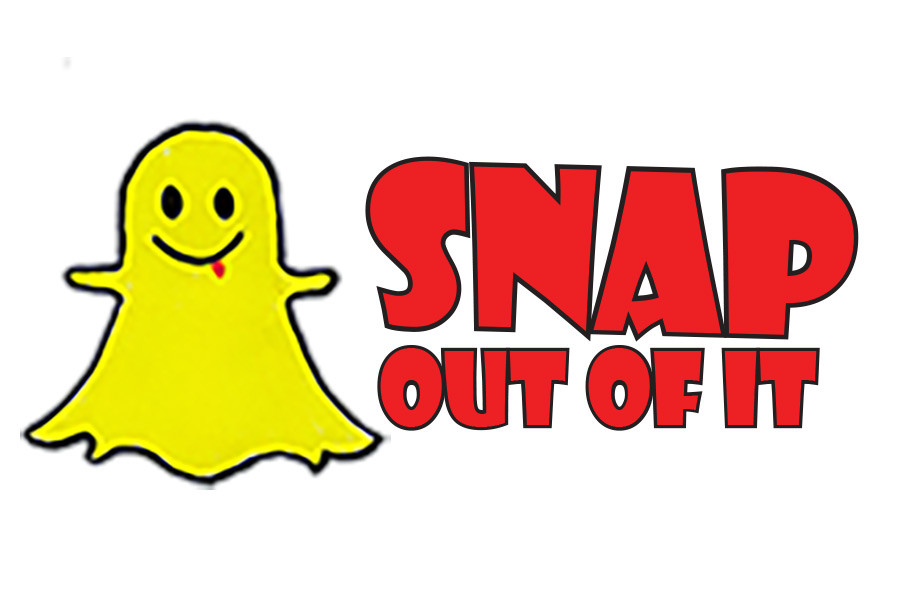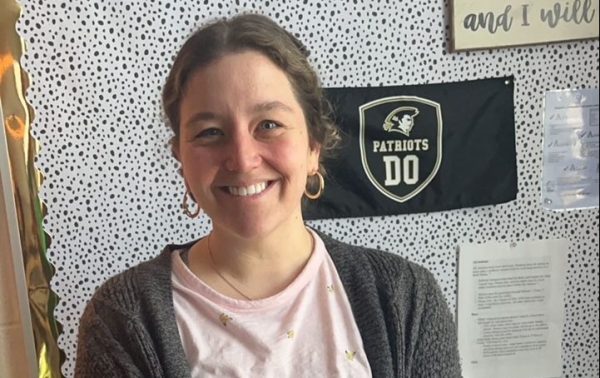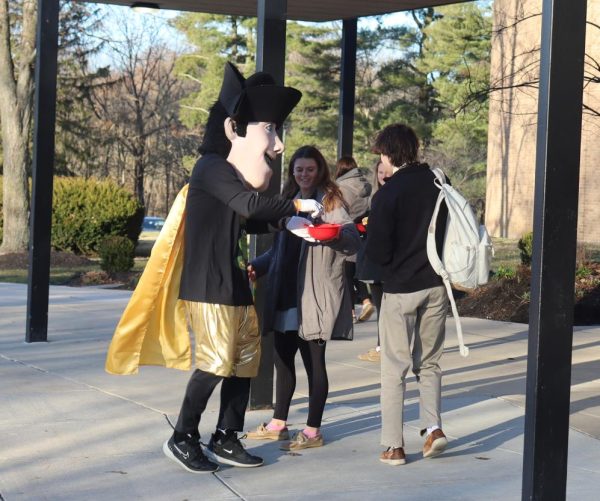Snap out of it
Why the popular Snapchat app’s new terms and privacy policy could make users re-think the pictures they snap and send
On Oct. 28, Snapchat updated its Terms of Service and Privacy Policy, leaving users thinking twice about the fine print before they check the “I agree” box.
What’s shocking to most is that Snapchat offers these new terms that go against the actual purpose of Snapchat: a way to send photos and videos to friends that will quickly delete after a number of seconds.
They were changed for three main reasons: to discuss in-app purchases, to make it easier to find others on the app, and to rewrite the policies in the way people actually talk.”
“I didn’t even know about the new terms until now. I do not like them at all, they’re so scary!” senior Mary Kate Gerety said. Gerety is one of many shocked and concerned Snapchat users.
Another concerned user is sophomore Bella Brooke. “I have heard of the new terms and they really concern me. I definitely think [Snapchat] is going too far and has no respect for privacy. I already know of people who have deleted the app and I am definitely going to limit my usage,” Brooke said. 
The Privacy Policy also states that they may gain information from outside the app, if allowed. Many people put in their phone number to find friends through their contacts, and by doing so, expose their number and all numbers of those in their contact book. Not only the numbers, but all things they have listed. So if someone has more than just the number listed, such as adresses, Snapchat has access to that information as well.
On Nov. 1, Snapchat sent a small letter addressing the controversies and the confusion from the policies. They started by saying, “First off, we want to be crystal clear: The Snaps and Chats you send your friends remain as private today as they were before the update.”
They also state, “The important point is that Snapchat is not—and never has been—stockpiling your private Snaps or Chats. And because we continue to delete them from our servers as soon as they’re read, we could not—and do not—share them with advertisers or business partners.”
They state they are not using their license in any other way, even though they legally could. Which raises the question, what if one day they decided to do so? They are legally allowed to, so why wouldn’t they?
This doesn’t bother senior Taylor Sommer. “I think people need to understand that Snapchat is a social network, just like Facebook and Twitter. Nothing you post is ever private, even if it appears so. They don’t bother me,” Sommer said.
There are many things that Snapchat offers such as the “snap” of a photo or video, My Story, Live Stories and Discover channels, filters, Lenses, and geotags that put a creative way to say location on your photos, which is also available for JC.
Snapchat is one of the more popular social networks out there and is still growing. But could the release of controversial policies overpower the paradise in Snapchat-landia and affect the number of users? Many celebrities have already deleted their accounts. Who’s next?
High school app scandal previews future problems
Snapchat makes its view clear in the Privacy Policy when it states, “In many cases the messages sent through our services are automatically deleted from our servers once we detect that they have been viewed or have expired.”
Snapchat says “many cases” to indicate it is your responsibility and they have no control about what happens to things that you send on the app, like when other people screenshot your photo, especially when using My Story, Replay, and Live. It goes on to say, “Don’t send messages that you wouldn’t want someone to save or share.”
That is one reason why social networks are feared: the sharing of photos, especially ones you do not want many to see. A great example of this would be the Colorado High School sex scandal, involving a photo vault app, which led to felony investigation.
According to CNN, “Investigators have at least three phones, including one with several hundred images on it,” Cañon City Police Chief Paul D. Schultz said.
According to Colorado High School superintendent George Welsh, “Students used a photo vault app that hides the nude photos by appearing to be a calculator or media player. When you go into it and you hold a certain button long enough, a prompt for password comes up. Once you enter that password, then any messages that have been sent from photo vault to photo vault start coming up.”
Welsh compared that app to Snapchat because you could choose whether something stayed on the screen. The students involved got in a lot of trouble because of their actions and the age differences. Charges could level to be a Class 3 felony, and some had to register as sex offenders.
Snapchat makes one rule very clear, “Keep it legal. Don’t use Snapchat for any illegal shenanigans and if you’re under 18 or are Snapping with someone who might be: keep your clothes on!”
With Snapchat’s Replays, something like the events in Colorado could likely happen. Replays originally replayed a snap once but now allows you to replay three snaps for the price of $0.99. As Snapchat puts it, “A Replay is like a compliment! So why stop at just one?” Although it could be a compliment, it could also be an open door into more opportunities to save and share photos that are meant for only one person. Additional apps, such as the vault app mentioned, only make this problem more common.
Pia Scotto is a Community Editor for The Patriot and jcpatriot.com






